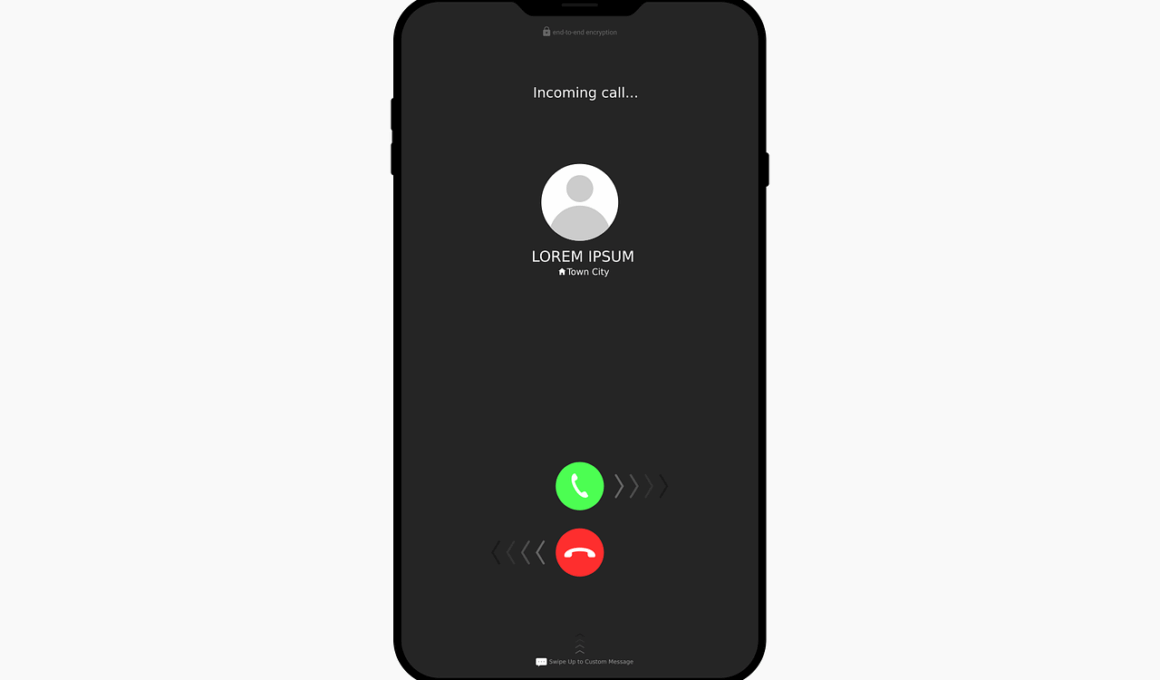Case Studies: Successful Cold Calling Campaigns
Cold calling remains one of the most effective strategies for reaching potential customers. Many businesses have seen significant success by implementing tactical cold calling campaigns. One notable case is a technology service provider that adopted a unique angle for its calls. Instead of the standard pitch, their representatives began by asking open-ended questions to engage prospects. This approach led to a 30% increase in appointments scheduled, which significantly boosted sales figures. Targeting a specific niche audience played a crucial role in refining their strategy. Their representatives researched the needs within their industry prior to calling, thus providing tailored solutions. Consequently, prospects felt valued and listened to, rather than bombarded by a sales script. The implementation of this strategy showcases the importance of customization and adaptability in cold calling. Additionally, follow-up protocols post-call ensured leads were maintained and converted in the long term. Training staff to listen actively was instrumental in this campaign’s success, as it fostered genuine conversations. Organizations looking to enhance their cold calling efforts should consider adapting successful strategies from similar case studies.
Another successful cold calling case is presented by a sales-oriented consulting firm, which revamped its approach to generate more leads. By focusing on a specific target market, they identified ideal clients and set lead generation goals. They utilized data analysis to understand potential clients’ pain points, leading to personalized calls aimed at solving specific issues. Their representatives were trained to convey relevant solutions during their pitches. As a result, conversion rates jumped by over 40%. One critical factor was the use of technology to track interactions and streamline their follow-ups. This system allowed sales teams to understand prospect behavior better and schedule timely check-ins. They implemented periodic training to refine their skills, making sure the sales staff is always equipped with effective communication techniques. Just as important was their nurturing follow-up strategy in the subsequent weeks, utilizing emails and additional calls to keep prospects warm. This approach reinforced connections and positioned them as trusted advisors rather than mere salespeople. The firm’s success illustrates that well-researched and structured cold calling can yield substantial returns for businesses aiming for lead generation.
Tech Company Transformation
A technology company successfully transformed its cold calling approach by implementing a collaborative sales model. Their sales teams began to work closely with technical experts, ensuring representatives had comprehensive knowledge about the products they were offering. This approach enhanced the credibility of their conversations, leading to an impressive rise in customer trust. The representatives were equipped with detailed FAQs and objection-handling guides tailored to potential customer concerns. In addition, they employed abridged pitches that allowed for flexibility in tone, catering to individual customer preferences. As a result, their sales conversion rates improved by 35%. This collaborative approach ensured that calls were both informative and engaging. They also embraced feedback loops where sales personnel regularly exchanged insights about prospects with technical teams. This practice created a rapid-response mechanism, enabling timely adaptations in strategy when faced with particular challenges. Their experiences illustrate that investing in team collaboration and knowledge-sharing does not merely benefit presenters but enriches the entire customer interaction experience. Building this synergy between departments is crucial in enhancing the effectiveness of cold calling campaigns.
A financial services firm made headlines with its innovative cold calling method focused on relationship building rather than simple transactions. By prioritizing genuine rapport over hard selling, the representatives managed to connect with prospects on a personal level. This strategy demanded more time during calls, yet it resulted in higher-quality leads and increased client retention rates. Sales personnel were trained to conduct needs assessments before proposing any solutions. This led to more meaningful discussions about financial planning and investment goals, resulting in a notable increase in satisfied referrals from existing clients. They also implemented a CRM system that allowed tracking relationships over time. Keeping detailed records of interactions ensured personalized follow-ups every time. This inspired confidence and trust among clients, who felt valued, not as just numbers. Client testimonials affirmed the positive impact of their approach, illustrated by an uptick in new sign-ups. The firm’s success demonstrates that cold calling doesn’t always have to be direct; investing in relationships often yields long-term benefits. Learning from this case offers other companies insight into fostering lasting equity with customers through thoughtful engagements.
Healthcare Provider Campaigns
A healthcare provider also revamped its cold calling campaign by emphasizing patient education. They recognized that many of their potential clients were unaware of the preventive services available to them. Thus, instead of selling insurance plans outright, they educated prospects about health issues and related benefits of their services. This strategy was initially met with skepticism from the sales team, fearing it may deter potential clients. However, as training progressed, the team realized it led to more meaningful conversations and increased trust. Education-centered discussions built rapport and interest among prospects and resulted in a 25% growth in inquiries. Sales personnel felt more confident discussing medical solutions rather than mere insurance, turning initially cold calls into informative consultations. This shift in strategy also aligned with current healthcare trends towards patient empowerment through information. Utilizing local events and community health forums as lead generators provided additional context for the calls. The success of this campaign exemplifies the power of affording potential clients knowledge, transforming an uncomfortable experience into a valuable discussion rather than just sales jargon.
An educational services provider also enjoyed remarkable success with its cold calling strategy. They adopted a dual approach that combined traditional outreach methods with integration into community events. Their representatives collected leads through local school fairs and educational seminars, allowing them to initiate conversations with interested parents. By showcasing their offerings at these events, they positioned themselves as community partners invested in students’ futures rather than mere vendors. This built trust and goodwill even before the first phone call. Out of the leads gathered, representatives employed tailored cold calling campaigns that addressed specific needs identified during the events. This increased conversion rates significantly, with many parents already familiar with the representatives by the time they picked up the calls. Furthermore, the team documented shared stories and experiences during initial outreach to tailor follow-up conversations effectively. Their success story shows that connecting with prospective clients on personal levels through community involvement creates warmer leads and serves as an effective strategy. Organizations can benefit significantly from forging connections that transcend the traditional client-vendor relationship.
Final Thoughts on Cold Calling Success
Reflecting on successful cold calling campaigns across various industries, it is essential to note common themes. Many successful companies prioritize personalization, understanding that a tailored approach resonates more with potential customers. Active listening techniques also emerge as a key component, enabling representatives to glean valuable insights during client interactions. Furthermore, nurturing relationships remains a central pillar, illustrating that the intent behind the call significantly impacts outcomes. Persistent follow-ups showcase commitment, reinforcing that sales are not merely transactions but the beginnings of meaningful connections. Integrating advanced technology further enhances campaign efficiency, allowing firms to track interactions and streamline workflows. It’s evident from these examples that success in cold calling arises from focusing on building relationships and addressing customer needs. The industry could benefit from hard-selling perceptions being replaced by an emphasis on consultative approaches, establishing a new standard. Companies should analyze these case studies to cultivate their own strategies, understanding that adaptability in tactics is paramount. In today’s competitive market, an informed and strategic approach to cold calling will ultimately define success.
Each of these case studies provides invaluable insights into the world of cold calling strategies. From personalized conversations to the significance of relationship-building, these examples underline essential practices every organization can learn from. Innovating beyond traditional methods is vital, particularly in an age where consumers are more discerning. By embracing the lessons shared within these case studies, businesses can enhance their outreach efforts, potentially leading to improved conversion rates. The changing landscape of sales strategies demands flexibility and responsiveness to client needs in order to stand out. Companies that prioritize understanding their prospects will surely see a notable difference in their results. Furthermore, investing in employee training and development raises the bar for interactions, ensuring sales personnel feel empowered. Finally, adopting a culture of learning and feedback loops enhances teamwork and synergy among various departments. These strategic adjustments can turn cold calling from an uncomfortable necessity into a successful avenue for genuine connections with future clients. The potential of cold calling extends far beyond mere sales figures; it reflects the essence of establishing meaningful relationships in business.





